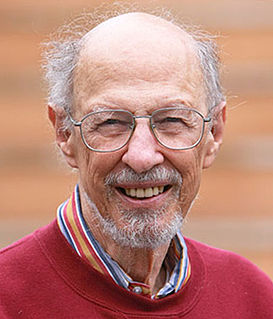A Quote by Terence McKenna
This is a general law of the universe, overlooked by science, that out of complexity emerges greater complexity. We could almost say that the universe, nature, is a novelty-conserving, or complexity-conserving engine.
Quote Topics
Related Quotes
We cannot fathom the marvelous complexity of an organic being; but on the hypothesis here advanced this complexity is much increased. Each living creature must be looked at as a microcosm--a little universe, formed of a host of self-propagating organisms, inconceivably minute and as numerous as the stars in heaven.
Perhaps, you know, new laws, new domains of potential openness are occurring as the universe ages, and complexity previously disallowed is now possible, and we are that complexity. We are nature moving out of its genetic phase - a phase under the control of chemical genes, which are physical structures, in to an epigenetic phase, a phase of culture ruled by codes, transformable culturally confined codes - mathematics, religion, philosophy, art, dance, humor.
New laws, new kinds of things can emerge as the universe evolves. The more moving parts you have in something, the more possibilities there are. There's a whole new science now of complexity, and what we see is that complexity requires a very different approach than the kind of bottom-up approach that fundamental physics has always used. We're gonna have to think about the world in a different way if we want to address complex systems.
The world is a thing of utter inordinate complexity and richness and strangeness that is absolutely awesome. I mean the idea that such complexity can arise not only out of such simplicity, but probably absolutely out of nothing, is the most fabulous extraordinary idea. And once you get some kind of inkling of how that might have happened ' it's just wonderful. And . . . the opportunity to spend 70 or 80 years of your life in such a universe is time well spent as far as I am concerned.
It's the old idea that the process of evolution is some push in the direction of greater complexity--in particular greater intellectual complexity. In one twig of the tree of life, namely ours, having a big brain happened to have advantages. But that's just what worked for a particular species of primate 5 to 7 million years ago.
The primary consequence of the computational nature of the universe is that the universe naturally generates complex systems, such as life. Although the basic laws of physics are comparatively simple in form, they give rise, because they are computationally universal, to systems of enormous complexity.





































